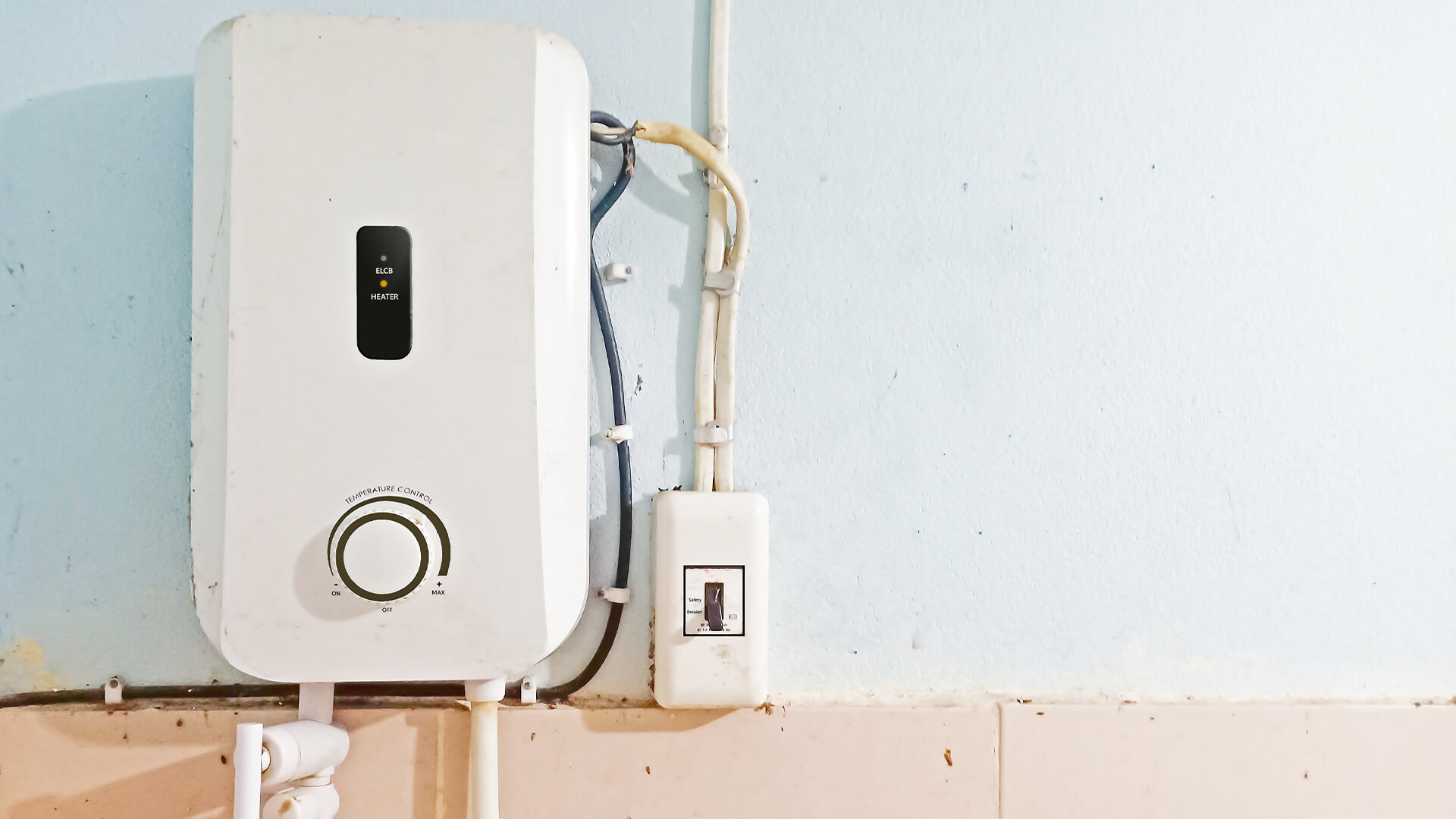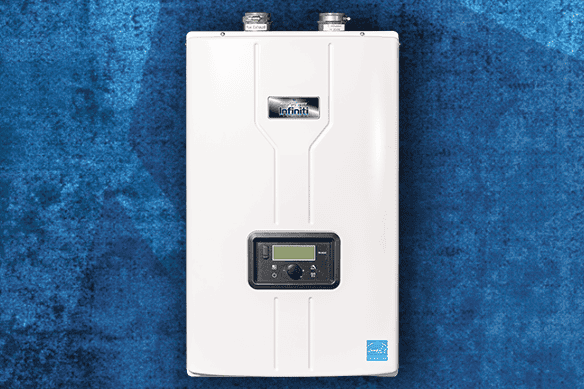Learning About The Advantages Of Continuous-Flow Water Heaters
Learning About The Advantages Of Continuous-Flow Water Heaters
Blog Article
Just about every person may have their own opinion about Why You Should Consider a Tankless Water Heater.

In a world where convenience and effectiveness reign supreme, it's not a surprise that house owners are frequently on the lookout for smarter means to handle their home's energy consumption and convenience. One advancement that has gradually acquired popularity is the tankless water heater. But exactly what makes these systems stand apart from the conventional tank-based designs the majority of us grew up with? Let's dive in and explore the benefits of tankless water heaters, helping you make a decision if it's time to make the button in your house.
Intro
Photo this: you enter the shower after a long day, anticipating a comforting waterfall of hot water, just to be welcomed by icy beads because the last individual utilized everything up. Sound familiar? Typical hot water heater keep a fixed quantity of hot water, indicating you go to the mercy of that storage tank's supply. Tankless systems, on the other hand, warm water on demand. Say goodbye to running out mid-shower, say goodbye to fumbling with timetables simply to make sure hot water is available.
Comprehending Tankless Hot Water Heater
What Are Tankless Water Heaters?
Tankless water heaters, often known as on-demand or instant water heaters, supply warm water just as it's required. Instead of saving gallons of pre-heated water, these units kick into action the minute you turn on the tap. Water travels through a warmth exchanger, warming up in real-time, indicating you get a nonstop circulation of hot water without the need for a big storage tank resting lazily by.
Exactly how Do They Differ from Standard Solutions?
Traditional heaters hold a storage tank of hot water, making use of energy to maintain that storage tank at a constant temperature level. Tankless systems get rid of the standing supply, lowering wasted energy and the bulky footprint of a big cylinder. Basically, you're upgrading from a "stockpile" attitude to a "made-to-order" method.
Typical Sorts Of Tankless Units
Tankless water heaters typically can be found in 2 selections: gas and electrical. Gas designs tend to provide higher circulation rates, perfect for bigger homes, while electrical versions commonly serve smaller homes and are commonly simpler to set up. Furthermore, some systems are developed for point-of-use (serving one fixture) while others can manage the whole home's hot water needs.
Trick Advantages of Tankless Water Heaters
Power Effectiveness and Cost Cost Savings
Say goodbye to heating up a titan storage tank's worth of water and maintaining it toasty all day. Tankless heating units lower standby power losses, which can reduce energy bills. While the preliminary price may be greater, the long-lasting savings usually justify the investment.
3. Space-Saving Style
If your home is short on storage, getting rid of the cumbersome storage tank liberates important area. Tankless devices are compact and can commonly be placed on walls, stashed in edges, or mounted in limited utility wardrobes without monopolizing the entire space.
4. Longer Lifespan
A well-maintained tankless water heater can outlast its tank-based cousin. Conventional tanks might last 10-15 years, while tankless models can keep chugging along for two decades or even more, making them a strong financial investment with time.
1. Countless Warm Water Supply
Ever had to set up showers so everybody gets their fair share of warm water? With tankless, that becomes a thing of the past. As long as the heating system's flow capability isn't gone beyond, you can take back-to-back showers without turning into a popsicle.
5. Improved Water Quality
Saving water in a storage tank can often cause debris buildup or a somewhat "off" preference. With tankless systems, fresh water is heated right away, minimizing the chances of debris buildup and possibly using cleaner-tasting water.
Considerations Before Changing
Though the benefits are engaging, it's wise to take into consideration a couple of aspects prior to totally committing.
Examining Your Home's Water Usage Patterns
If your household at the same time makes use of several components with high hot water demand, see to it the device's flow price fulfills your demands. Understanding your use patterns assists you pick the appropriate dimension and type of tankless heating system.
Upkeep and Care Tips
Tankless systems are reasonably low upkeep, however they aren't set-it-and-forget-it home appliances.
Regular Cleaning and Descaling
Difficult water minerals can build up in the heat exchanger, impacting efficiency. Normal descaling (commonly suggested each year) maintains the device going for peak performance.
Yearly Specialist Assessments
A yearly checkup from an expert ensures small issues are captured early. They'll assess the system's efficiency, try to find leakages, and aid keep optimal effectiveness.
First Financial Investment Expenses
Tankless heating units generally come with a greater in advance price tag. Between the unit itself and possible setup modifications, the first cost could give you sticker shock. But remember to see it as a lasting investment.
Installment Requirements
Relying on your home's infrastructure, you could require additional electric capacity or gas line upgrades. Ensure you recognize the setup requirements and consult with an expert to prevent shocks.
Guaranteeing Proper Air Flow
For gas versions, appropriate ventilation is important to securely eliminate exhaust gases. See to it airing vent systems are clean and properly mounted to avoid any potential safety risks.
Comparing Different Brands and Models
Not all tankless hot water heater are developed equivalent.
Investigating Trustworthy Makers
Search for respectable brands with a background of creating quality devices. A reputable manufacturer often supplies better client support and longer guarantees.
Setup: Do It Yourself or Expert?
While some home owners cherish taking on jobs themselves, tankless installation might not be the most effective time to burst out the toolbox.
Benefits and drawbacks of DIY Installation
A do it yourself mount could save cash, but it includes threats. Incorrect installation can cause inadequacy or safety and security problems. If you come in handy and have experience, it might be possible-- but proceed with care.
Checking Out Evaluations and Customer Responses
Individual reviews and responses from next-door neighbors or close friends who have gone tankless can provide important understandings. Often, real-life experiences can be a lot more telling than marketing pamphlets.
When to Call an Expert Plumbing Technician
For the majority of, calling a professional makes certain everything's done appropriately. A professional plumber recognizes regional codes, sizing needs, and venting criteria, decreasing the danger of problems.
Maximizing Efficiency
You've purchased a tankless system-- now maximize its effectiveness.
Ideal Temperature Settings
The majority of people establish their systems between 120-140 F. Adjusting the temperature level can boost convenience and cost savings. Experiment to locate a pleasant area that doesn't throw away energy.
Pairing with Low-Flow Fixtures
Want to extend your unit's capabilities? Consider setting up low-flow showerheads and faucets. They decrease water use, allowing your tankless system to provide a steady stream of warm water without straining.
Environmental Impact
Tankless hot water heater straighten with greener living objectives.
Decreased Carbon Footprint
By utilizing less power and only heating water as needed, tankless systems can decrease your home's carbon footprint, decreasing your ecological impact.
Conserving Natural Resources
Much less power usage and much less squandered warm water translate into fewer natural deposits being made use of, an environmental win-win.
Who Benefits A Lot Of from Tankless Heating systems?
The elegance of tankless heating systems is that they can match a selection of families.
Large Families vs. Solitary Owners
Huge households may like the countless warm water supply, while solitary occupants appreciate the energy cost savings from not warming a whole tank for just someone's morning shower.
House Owners with Restricted Space
If your home is short on square video, shedding the large container maximizes room for other fundamentals-- or possibly simply extra elbow room.
Eco-Conscious Consumers
Going tankless aligns with environmentally friendly worths, ensuring you're not wasting power or resources.
Future Trends in Tankless Hot Water Heater
The globe of home appliances is ever-evolving, and tankless water heaters are no exception.
Improvements in Technology
R&D is regularly improving warm exchangers, making devices a lot more reliable and resilient. Future designs could be also quieter, more compact, and far better suited for varying climates.
Smart Home Combination
Envision readjusting your hot water heater's temperature by means of an app or receiving maintenance alerts on your phone. As wise home tech advancements, we'll see even more connectivity and comfort.
Final thought
Choosing a tankless water heater is more than just upgrading your home's hot water system; it's purchasing lasting comfort, energy effectiveness, and a greener way of life. By considering your home's water use, bearing in mind installment demands, and committing to normal maintenance, you can enjoy a consistent stream of hot water without the baggage of a cumbersome tank. As innovation evolves, you can expect even smarter, much more effective tankless remedies that not only make your life simpler but likewise profit the earth.
Why You Should Consider a Tankless Water Heater for Your Home
Energy Efficiency and Cost Savings
Tankless water heaters, also known as on-demand water heaters, heat water only when needed. This means they don't waste energy keeping a tank of water hot constantly. This efficiency translates into substantial cost savings on your monthly energy bills.
Endless Hot Water Supply
One of the significant advantages of tankless water heaters is their ability to provide a continuous supply of hot water. Traditional tank water heaters have a limited capacity and can run out of hot water, especially during peak usage times. In contrast, tankless water heaters can provide an endless stream of hot water, making them ideal for larger families or homes with high water usage.
Space-Saving Design
Tankless water heaters are compact and take up significantly less space compared to traditional tank heaters. They can be installed on walls, under cabinets, or even outside, freeing up valuable space in your home. This makes tankless water heaters a great option for smaller homes or properties with limited space for a traditional water heater.
Longer Lifespan and Lower Maintenance
Tankless water heaters typically have a longer lifespan compared to traditional tank heaters. They can last up to 20 years or more with proper maintenance. Additionally, tankless systems are designed with replaceable parts, which can extend their lifespan further and reduce long-term maintenance costs.
Environmentally Friendly
Reducing energy consumption not only saves you money but also benefits the environment. Tankless water heaters contribute to a smaller carbon footprint by using less energy to heat water. Their energy efficiency and ability to minimize standby heat loss make them an eco-friendly choice for environmentally conscious homeowners.
Customized Temperature Control
Tankless water heaters offer precise temperature control, allowing you to set the desired temperature to meet your specific needs. This level of customization ensures you always have water at the perfect temperature for your comfort and usage requirements.
https://beantownservices.com/blog/consider-tankless-water-heater-for-your-home

We were shown that article on from a buddy on another web address. Sharing is nice. Helping others is fun. I take joy in reading our article about Unveiling the Hot Trend: The Benefits of Tankless Water.
Call Today Report this page